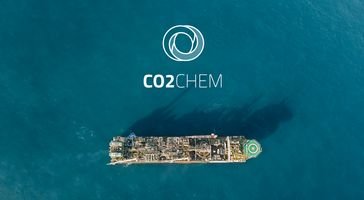Brazil to test production of green hydrocarbons from CO2 & hydrogen
The German Fraunhofer Institute participation in the project will help technological transfer from Germany to Brazil.

Repsol Sinopec Brasil (RSB) has partnered with other organisations to test the potential of producing hydrocarbons from captured CO2 and renewable energy sources under the project CO2CHEM.
RSB is joined by RCGI, the Department of Chemical Engineering of the Polytechnic School of USP, Cetiq Senai, and Hytron, created from research at Unicamp and focused on solutions for hydrogen production. Moreover, the German Fraunhofer Institute will also participate in some parts of the project.
The researchers will develop a pilot-scale deployment project using CO2 from different sources, such as offshore exploration and production activities, to produce green hydrocarbons.
The carbon monoxide (CO) and hydrogen (H2) will be obtained from the captured CO2 and water electrolysis using renewable power sources.
The CO2CHEM will develop CO2 capture technologies for the production of green hydrocarbons, which would not emit any greenhouse gases during the production process. The end green fuel product can be in the form of diesel, green gasoline or special paraffin.
Támara García, R&D Manager at Repsol Sinopec, said, “One of the alternatives we explore is the use of CO2 from different sources to generate high value-added products, such as fuels and chemicals, especially those that do not yet have substitutes.”
The initial project idea came into being during the ‘Bright Ideas for Research and Innovation’ workshop organised by the Research Center for Gas Innovation (RGCI-USP) in partnership with Repsol Sinopec Brazil (RSB), in February 2020, where experts identified the possibility of developing the project.
The CO2CHEM project is funded by the National Petroleum Agency (ANP) and the Brazilian Industrial Research and Innovation Company (Embrapii).
RSB also inaugurated its Line of Research & Development in Carbon Management, reinforcing its commitment to sustainability on the energy transition path.
